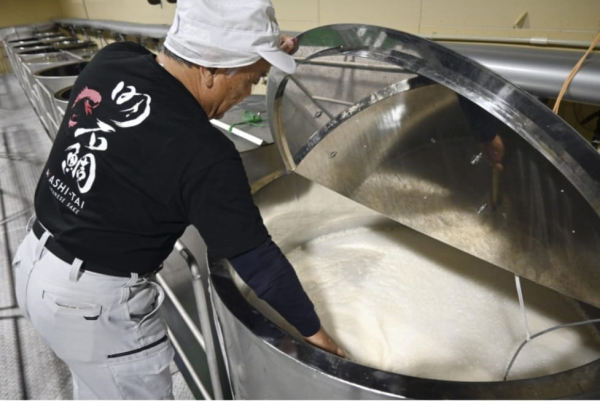KPL
(KPL/KYODO NEWS) An advisory panel to UNESCO has recommended Japan's traditional knowledge and skills for making sake and "shochu" distilled spirits be included in its Intangible Cultural Heritage list, putting their listing on course for formal endorsement later this year, Japan's culture agency said Tuesday.

(KPL/KYODO NEWS) An advisory panel to UNESCO has recommended Japan's traditional knowledge and skills for making sake and "shochu" distilled spirits be included in its Intangible Cultural Heritage list, putting their listing on course for formal endorsement later this year, Japan's culture agency said Tuesday.
Once formally adopted by the U.N. Educational, Scientific and Cultural Organization's intergovernmental committee session from Dec. 2 to 7 in Asuncion, Paraguay, they will become Japan's 23rd entry on the list.
Traditional sake brewing is an ancient technique for fermenting rice and other ingredients using "koji" mold. It is a rare production method in which multiple fermentation progresses simultaneously in one container.
Japan's top government spokesman, Chief Cabinet Secretary Yoshimasa Hayashi, said the recommendation for listing the key culture "brings us great joy," adding Japan will continue to promote the industry by "sharing its historical and cultural richness with people worldwide."
Many in the industry also welcomed the move, hoping the recommendation and the expected listing will draw attention to the traditional drinks and their production methods.
"It is an honor for Japan's sake brewing," said Hideharu Ota, the 64-year-old president of Daishichi Sake Brewery Co., a sake brewery in Japan's northeastern Fukushima Prefecture. "I hope people will renew their interest in Japan's world-recognized sake."
Genuemon Sudo, the 55th head of Sudohonke Co., which is said to date back to 1141, in Ibaraki Prefecture, northeast of Tokyo, said the recommendation is a "rediscovery of a Japanese traditional culture."
"I'd be happy if the listing will help attract people's attention and help prevent traditional sake-making from dying out," he said.
The Japanese government nominated sake-making in 2022 for the UNESCO listing.
Among the already-listed Japanese intangible heritage are the performing arts of Noh and Kabuki and "washoku" traditional cuisine.
Tokyo also seeks to have "shodo" calligraphy listed as an Intangible Cultural Heritage in 2026 when the U.N. body holds its biennial screening of nominations.
KPL